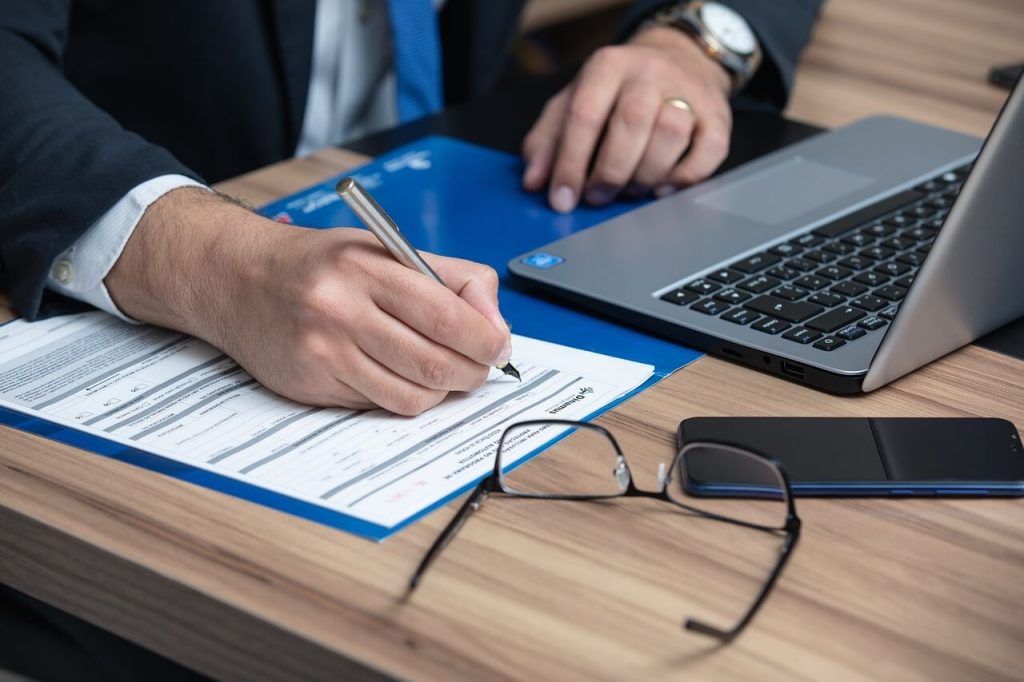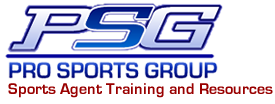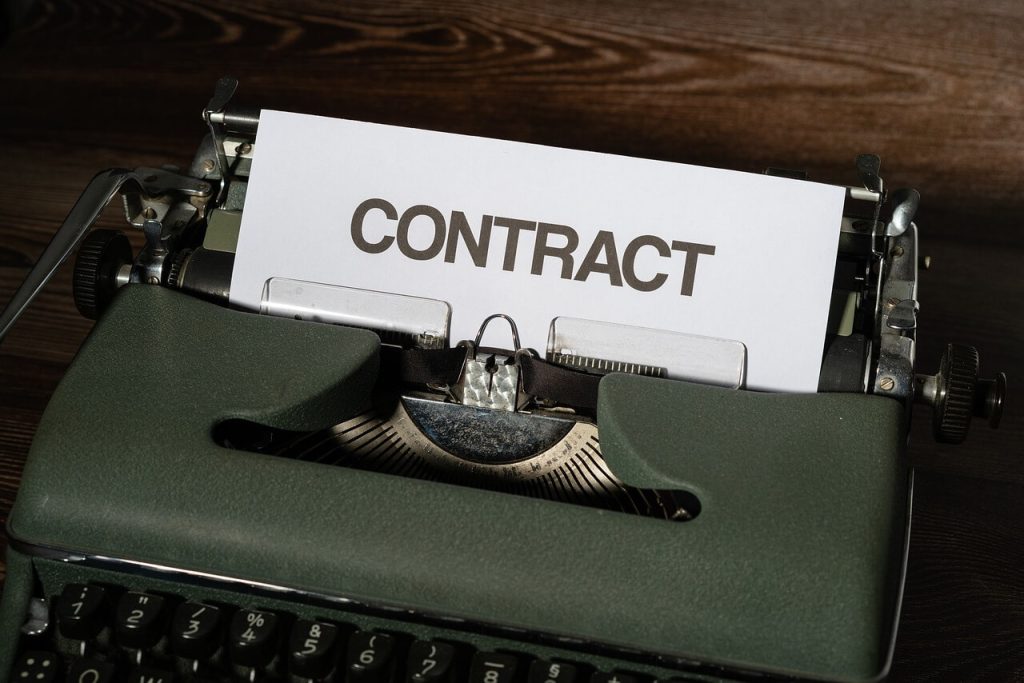As sports agents, our primary responsibility is to advocate for our clients – the athletes. One of the most important aspects of our job is negotiating successful endorsement deals, which can yield substantial financial benefits and elevate the athlete’s overall brand. The power of a well-negotiated endorsement can bring future opportunities and secure a solid financial future for the athlete. In the following paragraphs, we will discuss how to navigate the complexities of endorsement negotiations in the sports industry.
The first key to successful endorsement negotiations is understanding the value of our athlete’s brand. This involves analyzing their performance, fan base, media presence, and character. We must emphasize the unique assets our clients possess that would make them ideal endorsers for potential sponsors. This information helps us present a strong case to sponsors that partnering with our athlete will benefit their company.
Once we have established our client’s value, we dive into the negotiation process. Our goal is to secure the most favorable terms for our clients while maintaining positive relationships with sponsors. This includes considering not only monetary compensation but also contractual terms such as length, specific promotional obligations, and possible conflicts with future endorsement opportunities. We must be assertive but respectful during these discussions to ensure the best outcome for our clients.
In summary, successful endorsement negotiations as a sports agent require a deep understanding of our client’s unique brand and value, as well as a strategic approach to discussing terms with sponsors.
Understanding Endorsement Deals
As sports agents, it’s essential to understand the different aspects of endorsement deals for athletes. In this section, we will discuss the types of endorsements and their economic impact.

Types of Endorsements
Endorsement deals come in various forms, and it’s crucial for us to identify the best type of deal for our client. Some common types of endorsement deals include:
- Product Endorsements: The athlete promotes a specific product or service from a company, often using their image, name, or likeness in advertisements.
- Clothing and Apparel Deals: The athlete signs an agreement to exclusively wear a certain brand’s clothing and accessories during their sports events and public appearances.
- Signature Product Lines: The athlete collaborates with a brand to create a customized line of products that features their name and logo, such as shoes, clothing, or sports equipment.
- Sponsorships: The athlete agrees to represent a company or brand in exchange for financial support or resources, usually aimed at elevating the athlete’s performance and career.
Understanding these types of endorsement deals is vital when negotiating contracts to ensure that our client is getting the most suitable deal for their brand image and career goals.
Economic Impact
Endorsement deals not only boost an athlete’s image but also have a significant economic impact on their career. It’s essential to carefully evaluate the potential economic benefits before entering into an endorsement deal. Factors to consider include:
- Direct Financial Compensation: The most obvious economic impact of an endorsement deal is the payment the athlete receives for promoting the product or brand. This can include a flat fee, royalties based on sales, or performance-based bonuses.
- Exposure and Brand Equity: Endorsing a well-known brand can increase an athlete’s visibility and reputation, leading to future endorsement and business opportunities.
- Longevity and Sustainability: A successful endorsement deal may lead to long-term partnerships, offering more significant financial benefits over time.
By understanding the types of endorsements and their potential economic impact, we can represent our clients effectively, negotiate the most advantageous deals, and help them build successful and fulfilling careers.
Sport Agent’s Role
Responsibilities
As sports agents, our primary responsibility is to procure and negotiate contracts on behalf of our clients, including athletes, coaches, managers, and teams. These contracts may involve our clients’ employment as well as sponsorship and endorsements deals. Our expertise in contract negotiation aims to secure the best possible deals for our clients, aligning with their goals and interests.
Moreover, we assist athletes and their families when they move to new cities and help them make important decisions such as undergoing surgery or accepting a contract with less-than-ideal terms. We understand the significance of having strong negotiation skills to represent our clients effectively and efficiently.

Building Client Relationships
Establishing and maintaining strong relationships with our clients is an essential aspect of our role as sports agents. We are dedicated to understanding our clients’ needs, expectations, and career aspirations, which allows us to negotiate contracts, sponsorships, and endorsements that align with their goals.
In order to build these relationships, we focus on:
- Communication: Keeping an open line of communication with our clients to ensure we are informed about their needs, feedback, and preferences.
- Trust: Building trust through honesty and transparency in our interactions and partnership.
- Listening: Actively listening to our clients and understanding their perspective, concerns, and desires.
Furthermore, we continually hone our negotiation strategies and tactics by staying up to date with industry trends and practices, ensuring we are well-equipped to represent our clients to the best of our abilities.
Negotiation Process
Research and Market Analysis
In the negotiation process, we begin with thorough research and market analysis. This includes assessing the athlete’s strengths, weaknesses, and achievements on and off the field. By understanding their value in the marketplace, we can better position them for lucrative endorsement deals that align with their personal brand and values. Furthermore, we analyze the competition and the current marketing trends in the sports industry to identify potential opportunities and pitfalls.
Identifying Potential Brand Partners
Based on our research, we create a list of potential brand partners that align with the athlete’s values and target audience. This requires a deep understanding of the brands’ mission, marketing goals, and target demographics. We also take into account any existing partnerships or affiliations the athlete may have, which could hinder or enhance a successful partnership. It’s crucial to ensure that the potential brand partner is a good fit, as a well-suited collaboration can lead to long-term relationships and increased revenue for both parties.
Establishing Terms and Conditions
Once the potential brand partners have been identified, we move on to the negotiation of the endorsement contract. A crucial aspect of this process is to protect the rights of the athlete while maximizing their financial gains. According to this advice on LinkedIn, this involves careful review of the contract terms, ensuring it covers aspects such as:
- Term of the contract
- Compensation and incentives
- Royalty provisions
- Exclusivity clauses
- Image and trademark rights
- Personal appearance requirements
During the negotiation process, we embrace the pause, which is an essential strategy found in CNBC. This tactic allows us to project confidence in our position despite competing interests. In order to reach a win-win agreement for both the athlete and the brand partners, we focus on clearly outlining the athlete’s roles and responsibilities within the contract, as mentioned by Miosuperhealth.
By following these key steps, we strive to secure the best possible endorsement deals for our athletes, ensuring that the partnerships are mutually beneficial and successful in the long term.
Maximizing Athlete’s Endorsement Potential
Developing a Personal Brand
As sports agents, we understand the importance of creating a strong personal brand for our athletes. This includes defining their values, beliefs, and unique selling points that set them apart from other competitors. Having a clear personal brand not only attracts potential endorsers but also helps our athletes negotiate better deals by showcasing their strengths and qualities.
To develop an athlete’s personal brand, we work closely with the athlete to understand their goals, motivations, and interests. We then create a targeted marketing and branding strategy that highlights their unique traits and brings their personal story to life. This approach helps make our athlete more relatable and appealing to potential sponsors.

Utilizing Social Media
In addition to building a personal brand, we recognize the vital role that social media plays in today’s endorsement landscape. Sponsors value athletes with a strong social media presence because they offer more opportunities for brand exposure and engagement.
To maximize our athletes’ endorsement potential through social media, we actively work with them to grow their follower base and create engaging, authentic content. This content not only helps solidify their personal brand but also appeals to sponsors who view social media influencers as valuable marketing partners.
We also closely monitor our athletes’ social media accounts to ensure that any content shared aligns with their personal brand and the values of their endorsers. We provide guidance and coaching on how to effectively communicate and interact with fans while maintaining a professional image that attracts more sponsorship opportunities.
Legal Considerations
Contracts and Agreements
As sports agents, we must consider several factors when negotiating endorsement deals for athletes. There are six essential elements to binding and enforceable contracts: an agreement, parties who hold competence, genuine assent of parties, support by consideration, a lawful objective, and the required legal form.
We recommend the following steps:
- Ensure transparency: Athletes should disclose and discuss any ongoing endorsement obligations with other sponsors. A sponsor should make sure that the athlete does not sign deals with their competitors.
- Define the scope: The territory of the rights granted in endorsement agreements can either be worldwide or limited to one or more countries. This determines how extensive an athlete’s endorsement duties will be.
- Clarify the term: Establish the duration of the agreement (e.g., one year) and what an athlete’s representative duties will be during that period.
Endorsement Regulations
We must be aware of various endorsement regulations applicable to athletes. Certain laws and school regulations may prohibit student-athletes from entering into endorsement contracts under certain circumstances. Here are some points to consider:
- Comply with rules: Familiarize yourself with applicable laws governing endorsements and athlete eligibility. Each governing body may have different requirements, so it is crucial to understand the relevant rules.
- Be aware of prohibited deals: Many state NIL laws and school regulations prohibit student-athletes from entering into endorsement contracts with specific categories, brands, or companies. We have to take these limitations into account when negotiating on behalf of athletes.
- Obtain necessary approvals: Some endorsement agreements may require approval from relevant authorities or organizations. Ensure that all necessary approvals are obtained before finalizing the agreement.
Careful consideration of the legal aspects of endorsement agreements is essential to protect the interests of athletes and ensure a successful partnership between athletes and the companies they represent.
Post-Negotiation Management
Monitoring Endorsements
As the sports agent, we need to ensure that our athletes are adhering to the terms and conditions of the endorsement contract. This involves keeping a close eye on how they promote the brand or product. We need to collaborate with both the athlete and the endorsing company to make sure the marketing materials align with the agreement.
Some key elements that we should monitor include:
- Adherence to the campaign timeline provided by the endorsing company
- Compliance with the brand’s general policies
- Ensuring the athlete is engaging with the brand positively on social media and other platforms
We can achieve effective monitoring by scheduling periodic meetings with the athlete and endorsing company, setting up periodic reports, and staying up-to-date with the daily progress through multiple communication channels.

Assessing Performance and Impact
In order to improve future negotiations, it is fundamental to monitor our athletes’ influence on the success of the endorsement deal. We must assess the impact of our athlete’s endorsement on the brand’s sales, market share, and overall reputation.
To accomplish this, we can:
- Perform market research to track changes in consumer habits
- Monitor the athlete’s social media reach, such as the number of engagements or followers
- Analyze reports provided by the endorsing company, looking for correlations between the athlete’s feature and any increase in sales or visibility
It is also crucial to evaluate the fairness of the deal for the athlete. This involves verifying that they have received appropriate monetary compensation, exposure, and other benefits mentioned in the contract.
By consistently monitoring endorsements and assessing their performance and impact, we ensure that our athletes are meeting their contractual obligations while also providing valuable insights for future endorsement deals they may partake in.

Hey there, I am Kevin. I was born in Massachusett but spent most of my life in North Carolina. I created this website, Pro Sports Group, in January of 1998 and maintained it since. Man, a lot as changed since then.

